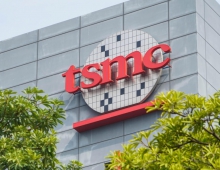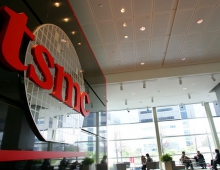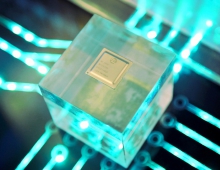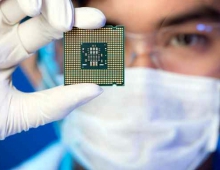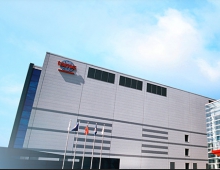
TSMC Tapes Out First CoWoS Test Vehicle Integrating with JEDEC Wide I/O Mobile DRAM Interface
TSMC today announced that it has taped out the first CoWoS (Chip on Wafer on Substrate) test vehicle using JEDEC Solid State Technology Association's Wide I/O mobile DRAM interface.
This new generation of TSMC's CoWoS test vehicles added a silicon proof point demonstrating the integration of a logic SoC chip and DRAM into a single module using the Wide I/O interface. TSMC's CoWoS technology provides the front-end manufacturing through chip on wafer bonding process before forming the final component. Along with Wide I/O mobile DRAM, the integrated chips provide optimized system performance and a smaller form factor with improved die-to-die connectivity bandwidth.
CoWoS is an integrated process technology that attaches device silicon chips to a wafer through chip on wafer (CoW) bonding process. The CoW chip is attached to the substrate (CoW-On-Substrate) to form the final component. TSMC CoWoS technology has entered the pilot production stage.
TSMC worked with SK Hynix, Cadence Design Systems and Mentor Graphics to deliver the tape-out.
"Silicon validation is a critical step in the development of a highly advanced and complete CoWoS design solution," said Cliff Hou , Vice President of Research and Development at TSMC. "The successful demonstration of the JEDEC Wide I/O mobile DRAM interface highlights the significant progress TSMC and its ecosystem partners have made to capitalize on the performance, energy efficiency and form factor advantages of CoWoS technology."
In seperate news, TSMC is currently seen to be the sole 20nm process supplier to Apple quad-core processors.
Citigroup Global Markets' market research fellow, J.T. Hsu, pointed out that Apple began verifying TSMC's 20nm process in August this year and may begin risk production in November with the process. Volume production is expected to start in the fourth quarter of 2013, raising the possibility that TSMC will hike capital expenditure to US$11-12 billion in 2013 and 2014.
Hsu estimated Apple to design quad-core processors into iPad, iTV and even Macbook.
Apple began developing quad-core processors in 2010, when it acquired fabless chip company Intrincity. Until the acquisition, Intrincity had announced multi-core processors.
Apple's contracts have been widely criticized for low margin to contract suppliers. However, Hsu ascribed Samsung's higher cost in the production of Apple processors mostly to the company's inefficiency.
CoWoS is an integrated process technology that attaches device silicon chips to a wafer through chip on wafer (CoW) bonding process. The CoW chip is attached to the substrate (CoW-On-Substrate) to form the final component. TSMC CoWoS technology has entered the pilot production stage.
TSMC worked with SK Hynix, Cadence Design Systems and Mentor Graphics to deliver the tape-out.
"Silicon validation is a critical step in the development of a highly advanced and complete CoWoS design solution," said Cliff Hou , Vice President of Research and Development at TSMC. "The successful demonstration of the JEDEC Wide I/O mobile DRAM interface highlights the significant progress TSMC and its ecosystem partners have made to capitalize on the performance, energy efficiency and form factor advantages of CoWoS technology."
In seperate news, TSMC is currently seen to be the sole 20nm process supplier to Apple quad-core processors.
Citigroup Global Markets' market research fellow, J.T. Hsu, pointed out that Apple began verifying TSMC's 20nm process in August this year and may begin risk production in November with the process. Volume production is expected to start in the fourth quarter of 2013, raising the possibility that TSMC will hike capital expenditure to US$11-12 billion in 2013 and 2014.
Hsu estimated Apple to design quad-core processors into iPad, iTV and even Macbook.
Apple began developing quad-core processors in 2010, when it acquired fabless chip company Intrincity. Until the acquisition, Intrincity had announced multi-core processors.
Apple's contracts have been widely criticized for low margin to contract suppliers. However, Hsu ascribed Samsung's higher cost in the production of Apple processors mostly to the company's inefficiency.

